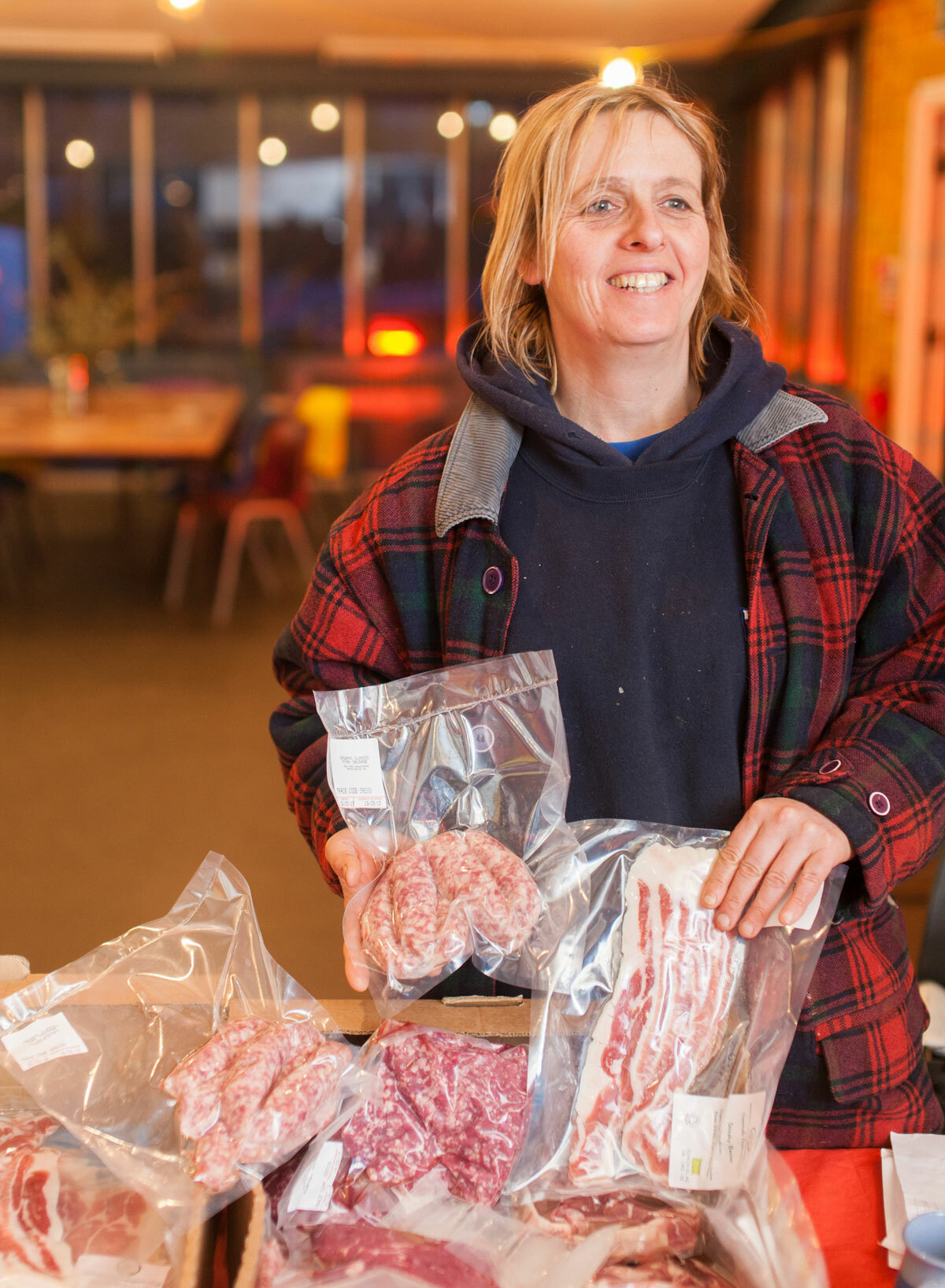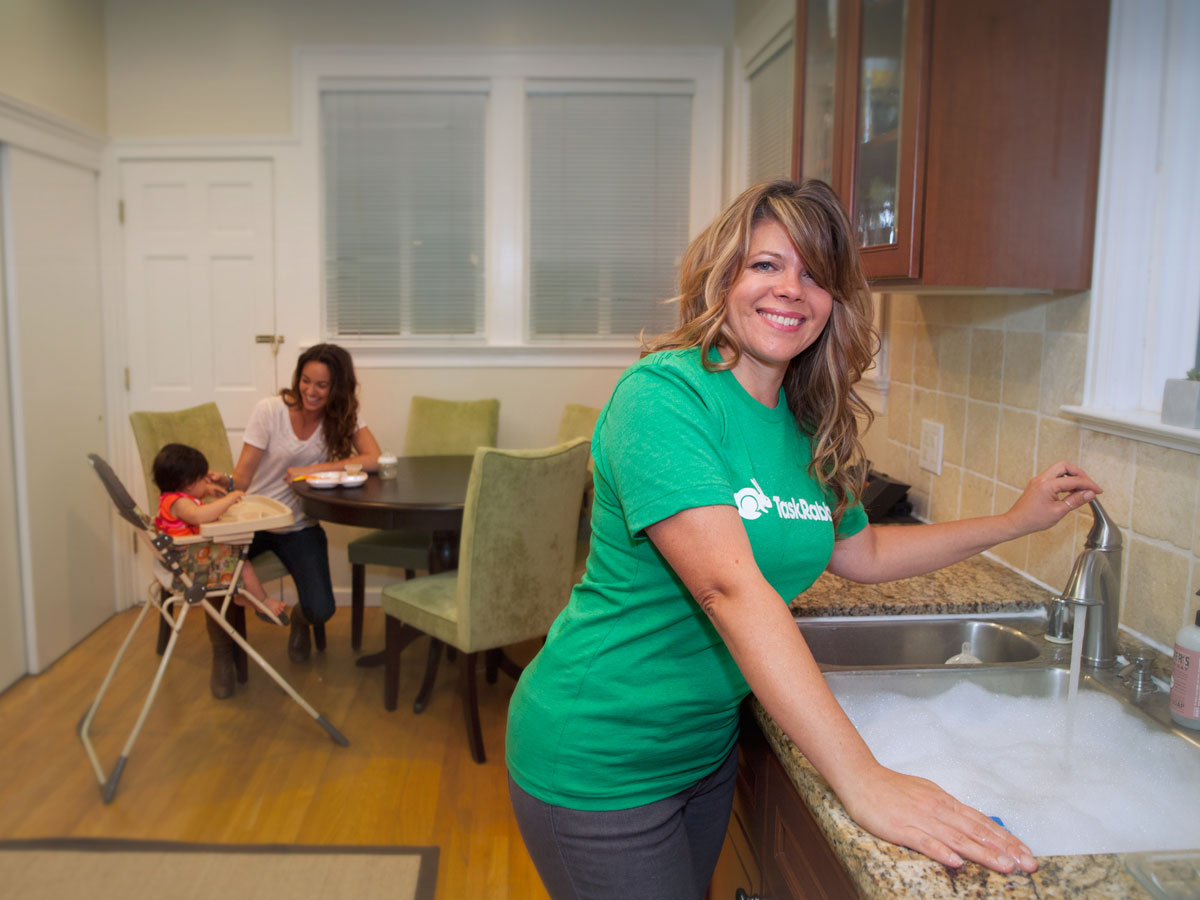Internet karma: how the shareconomy is making the world better (and your life more exciting)
Meet the websites that reinvent community spirit by letting you borrow from and lend to others. Karl Marx would be so proud…

So, the ‘shareconomy’ – that means we’ll all be knitting socks in a commune soon, right? Don’t fret, it’s nothing so unsexy as that. Simply put, most of us have things we don’t use and skills we could share. Enter, stage right, the internet, which makes it possible to lend things to others, sometimes for a fee, sometimes just for the vibes, man. And even when there is a charge, it’s usually less than using a traditional service.
Want to get started? Simply list something – anything from a spare room to your pet — on the right website and people will contact you to borrow it. Sites such as Economy Of Hours take the peer-to-peer spirit further, letting you trade your skills and time for the same in return. And lo! A new spirit of community is born. It’s what the internet was invented for.
There was a time when a cheap room meant Premier Inn and hiring a car meant Enterprise. But now, everyday folk on the internet have flats, cars, and all kinds of other stuff that they’re willing to lend. “Sharing has been around forever,” explains Nathan Blecharczyk, co-founder of Airbnb, the pioneering site that lets you rent a room in someone else’s home. “It’s just that in the last 50 years people have accumulated so much stuff that they’re not using it all. Now, technology is making it possible for them to share it.”
Websites can match owners to borrowers, online payment systems allow people to stump up cash, and social networks let everyone check they can trust one another. This is the sharing economy – and if you’re not using it yet, you probably soon will be.
Sharing 2.0
The whole thing sounds a lot like re-branded renting, but advocates rightly point to a few subtle differences. “Three things mark out a successful sharing economy company,” explains Blecharczyk. “One, the technology has to remove friction from the transaction, to make it easier. Two, there needs to be some degree of financial arbitrage. And three, it has to be a community, it has to be fun. It can’t just be about the money. That’s the secret sauce.”
Add to the mix the fact that shareconomy services are often good for the environment, because they minimise wasteful purchases, and it seems an irresistible prospect. It’s certainly working for Airbnb: launched in 2008, the site now offers users over 500,000 places to stay in 34,000 cities around the world.
Time to swerve the Best Westerns and stay somewhere a bit different – such as…
St Pancras Station Clock Tower (£150/night)
There are no hunchbacks here – just one of the most decadent apartments in London. Its 10-metre-high rooms accommodate
three people in a stunning mezzanine suite and it’s perfectly positioned for exploring the city.
Nanuku Levu island (£315/night)
If you’ve started feeling a bit Robinson Crusoe, why not hire out Nanuku Island. This tiny 10-acre private paradise is littered with palm trees and its two classic Fijian-style homes are just 10 steps from the azure-coloured sea.
The itHouse (£220/night)
Completely off-grid, this home sits in California’s ‘high desert’ area and is powered solely by solar panels. It’s remote — the biggest local attraction is the Joshua Tree — and has no TV or Wi-Fi, so it’s the perfect way to break your Twitter addiction, too.
Brooks Avenue Apartment, LA (£660/night)
This sleek apartment overlooks the lovely Venice Beach. Bathed with Californian sun, there’s
a hot tub, hammock and geodesic dome bedroom
to help you relax when LA feels all GTA-like.
Boom, boom
It’s not just about finding a taker for your spare room, though. American sites such as RelayRides have created peer-to-peer car rental services, Uber – and its cheaper UberX offshoot – has pioneered a new kind of taxi service by matching willing drivers to wanting passengers, and TaskRabbit allows people to farm out chores. It’s all great value, too. “UberX in London is 30-40% cheaper than a black cab,” explains Corey Owens, Head of Global Public Policy at Uber. “For a long time people didn’t realise it was possible to make services that cheap and provide someone with a living wage.”
There are increasingly more UK-specific examples, too, allowing you to share home-cooked food, borrow land to pitch a tent, or even find a pooch you can pet-sit for. Business is booming. In fact, Lauren Anderson from Collaborative Consumption, an independent research organisation specialising in peer-to-peer markets, is “comfortable valuing the sharing economy globally as worth in the region of US$100 billion.”
All about the money?

With that much cash floating around, it’s tempting to get involved. As a customer you can save a packet, but you could make money, too. Not all the cash comes your way, though – the sites take a cut, and you may have to pay tax on the income – but it’s still possible to make a wedge.
One user we spoke to, who wants to remain anonymous, rents a central-London apartment for £2000 a month then sub-lets it on Airbnb. “I make £500 in profit each month,” he explains. “It’s not passive income, but now I’ve been doing it for a while I probably only spend about 20 minutes a day working on it.” That’s an hourly rate of a none-too-shabby £55.
He’s not alone in this, either: Airbnb claims the average San Francisco host makes £5600 a year, while Steven Webb from RelayRides explains that “some power users make upwards of £600 a month.”
Community service

The origin of all this success? “It’s been a perfect storm,” explains Anderson. “The sharing economy allowed people to have what they wanted without spending as much during the financial crisis. But at the same time there’s been a resurgent desire to feel part of a community, too.” That’s particularly evident in the UK. “In the US, they’re a much purer breed of capitalist,” muses Ben Pugh, founder of FarmDrop, a site linking food producers to customers, cutting out the supermarkets. “In the UK, we’ve got a streak of left-wing in us.”
His company means producers see more profit and customers get fresher, tastier food, but many sites highlight the UK’s egalitarian streak: Streetclub helps communities pool DIY tasks and tools, while StreetBank lets you share possessions with a neighbour. Neither require money to change hands. “We think financial exchanges take away the natural high you get when you help someone,” explains Sam Stephens, founder of StreetBank. “So we’re encouraging people to be generous.”
Trust nobody
Cash or otherwise, you might still be worried about dealing with strangers. After all, a woman in the US famously had her apartment trashed by a rogue Airbnb guest in 2011, and some RelayRides and Uber cars have been involved in accidents. “Without a doubt the most critical aspect for all businesses in the sharing economy is establishing trust and safety,” admits Webb, which is why sites offer multiple layers of reassurance.
In some cases, users can be filtered from the get-go — blemished driving licenses make it impossible to sign up to car-sharing sites, say. Then there’s comprehensive insurance, such as Airbnb’s £600,000-worth of protection, and social-network integration, which allows users to identify people. But far and away the most effective system is peer review, where both parties leave each other publicly available feedback. “Both guest and host have a reputation to keep up,” explains Blecharczyk.
Legal sighs

This is nothing new, of course – eBay has been using that system for almost 20 years. Though, as Blecharczyk admits, “there are still opportunities to evolve” when it comes to developing trust and safety. Take TrustCloud: a site which measures virtuous online behaviour across social networks and shareconomy sites, then gives you a score that others can judge you on. “Think of it as a trust resume,” explains Xin Chung, its founder and CEO. “An automatically updated record of how online activity reflects how reputable you are.” Maybe time to cut down on those NSFW Reddit Photoshop battles, then.
While the economy has your back, it’s not clear who has its. It is, after all, causing a stir among established companies that fear their turf is being invaded. Whether it’s hoteliers insisting Airbnb should pay extra taxes or taxi companies questioning the legality of lift sharing, there’s no shortage of friction. So far, there have been no major scuffles in the UK, but it’s surely a matter of time. “People don’t care too much about the piece of paper that makes someone commercially licensed,” explains Owens “But they do care about what it stands for: the accountability and transparency.” Over time, both websites and regulators will need to settle on how that’s best enforced.
The future of finance?

Despite the emphasis on community, critics suggest that the shareconomy is like every other before it: a money-maker. And, like all economies, it wants to grow. Enter services such as Onefinestay, a concierge-like service that wants to make things more luxurious. It lets owners of plush properties rent out their place with minimal effort, interacting with clients, cleaning the property, and even meeting guests on their behalf.
Elsewhere, RelayRides is upselling, too. “In the summer we launched an airport parking service,” explains Webb. “Now we can take and clean your car at the airport, then rent it to arriving travellers. You can pick one up when you get off your flight, too.”
All told, cataloguing and sharing your possessions looks as if it’ll become a much bigger part of our lives. Google is reported to be working on a service called Mine, which could keep an exhaustive digital record of items you own or need. Soon, you might be sharing everything with everyone – and not just those blurry photos of you gurning in a dimly lit bar.
OK if i grab this? It’s not all flats – handy tools like these are up for grabs, too…
Audi A3 (£5/hour)
It’s not all Ford Focuses and Vauxhall Corsas on Zipcar – you can also opt for a classy A3 from around the corner and use it by the hour to impress relations or prospective amours. Or, failing that, take a day trip that doesn’t involve piling unassembled IKEA furniture into a boot. [zipcar.co.uk]
Giant Trance X0 (£43/day)
Your fold-up Brompton won’t quite cut it in the forest. With five inches of suspension travel front and rear, hydraulic disc brakes and automatically adjusting saddle height, the Giant Trance X0 chomps up muddy trails like you do hot dinners. Now you can try one for the day. [spinlister.com]
School of Webcraft (Free)
Web developer courses are astronomically pricey and your developer mate’s well of patience and free advice has understandably run dry. Fortunately, this Mozilla-sponsored course provides free help from mentors and teaches you everything from basic HTML to hosting a site. [p2pu.org]
Stuff says…
Sharing our digital lives on the internet is as easy as two drunken clicks followed by a hasty delete. The internet’s ability to do the same for our physical stuff has been slowed by logistical, legal and trust hurdles. But, after a few stumbles, the shareconomy is starting to hit its stride.
Some of its companies are traditional rental in disguise, but others such as StreetBank and FarmDrop might just spark a sense of local community that was lost when the internet torched the old geographical rulebook. Sure, the shareconomy isn’t suited to everything – expensive gadgets and unwanted spouses spring to mind. But the prospect of seeing a locally available 3D printer, snowboard or web designer on a map surrounding your house is very real. And one that’s surely better than a loft bulging with ill-advised impulse buys.





